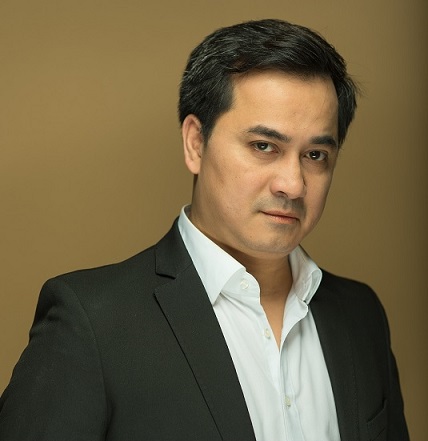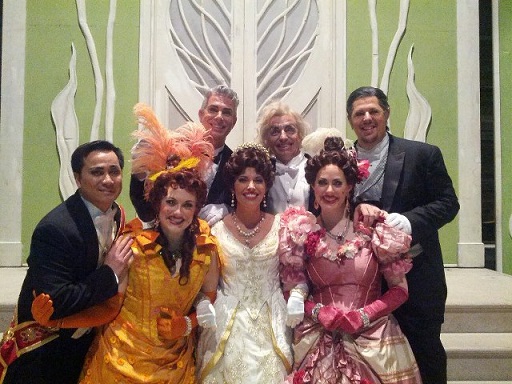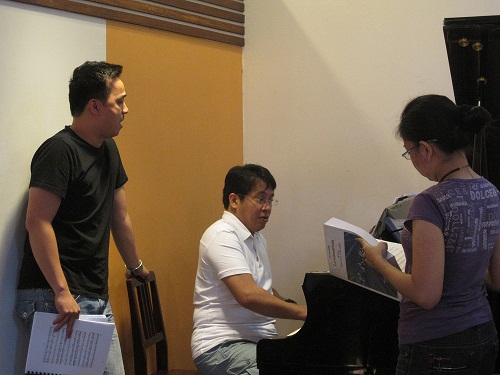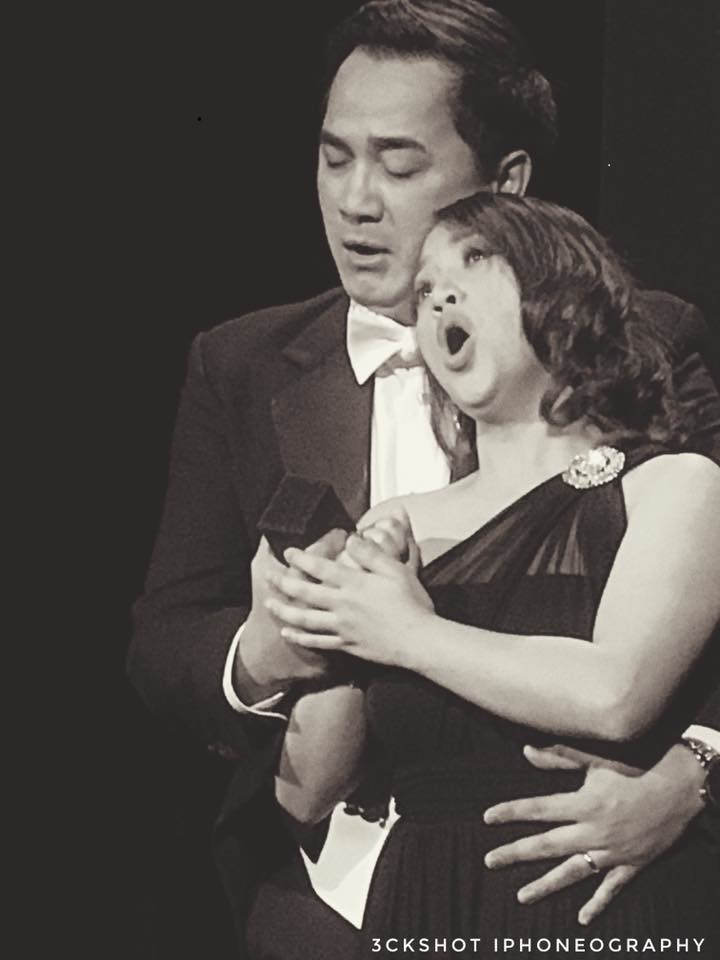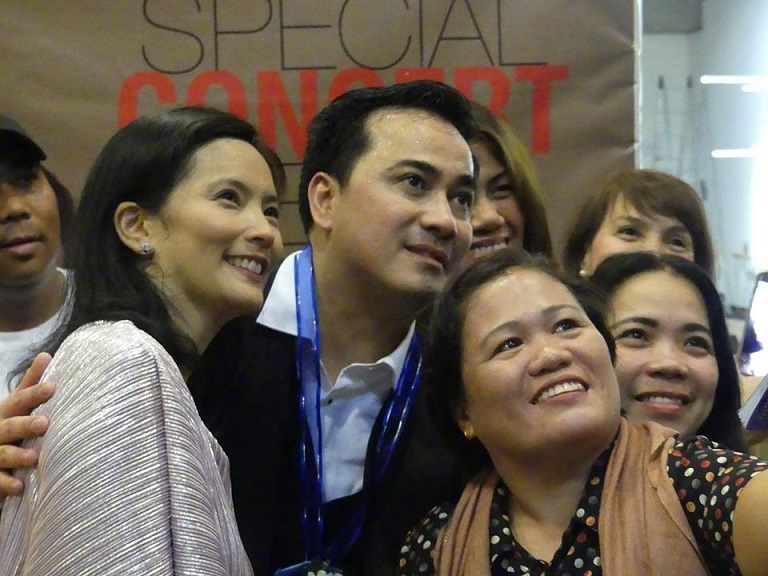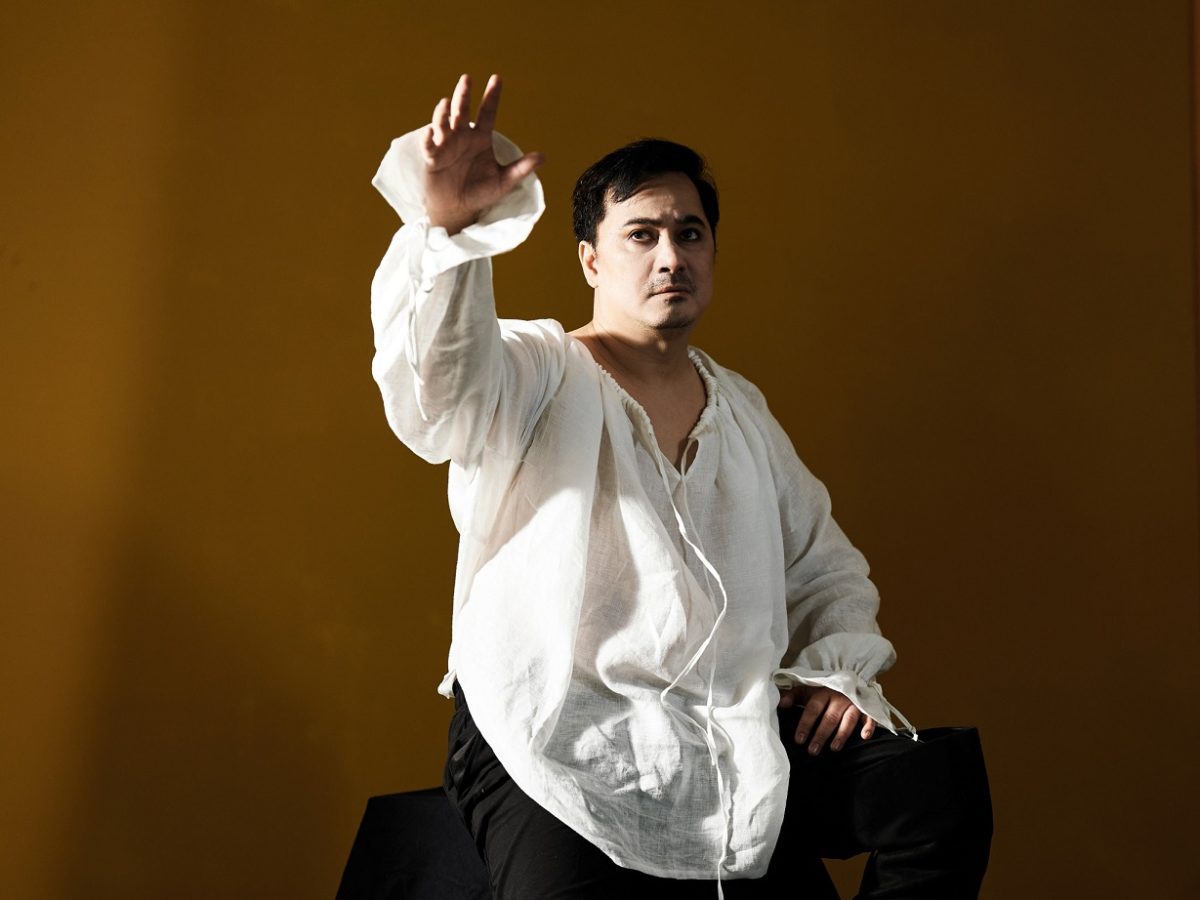
By ELIZABETH LOLARGA
Artists photos by JOJIT LORENZO
“WE can sustain it. But it would take a village.” This was international tenor Arthur Espiritu’s response to the idea of an opera company that would accommodate the boom in young, classically trained vocal artists in this country.
“We can sustain it. But it would take a village.” This was international tenor Arthur Espiritu’s response to the idea of an opera company that would accommodate the boom in young, classically trained vocal artists in this country.
While preparing for “Opera Gala with Arthur Espiritu,” one of the activities to open the first Bonifacio Global City Arts Center Festival on Jan. 15 at 5 p.m. at the GlobeTheater of the Maybank Performing Arts Center, BGC, Taguig, he said, “It is not a competition to see who can be the bida, who can do this and that better. It takes people working together and putting something together. Hindi rin yung ningas kugon. It takes sustained efforts not just from the beginning. It has to be strong both by the cover and content, the quality of content. People appreciate good quality and good content. They will come back for more.”
For “Opera Gala” he will sing with friends and students with Dingdong Fiel serving as accompanying artist. Espiritu had kind words for the singers, some of whom he privately tutored while he was on sabbatical from his commitments abroad.
Of Kay Balajadia Liggayu, he said, “she has developed into a fantastic lyric soprano—great musicality, very smart, has a very beautiful voice that can be agile and powerful. Her voice has this very sweet quality that no one has.”
He said Marielle Tuason is “a fantastic young coloratura soprano. Her voice has acquired shimmer and strength. When she sings, she has a beautiful, cool and pleasant timbre to listen to. It has a soothing effect in one’s ears. She is such a great kid, one of the best coloratura voices I’ve heard (from her age group).”

He continued, “I have just started working with Krissan Manikan-Tan and over the short period of time, she has picked up so much already. She is a fantastic lyric mezzo soprano in my book. So much power in both the dark and lighter part of her voice. A rising star indeed. She can deliver quite a good punch with her voice.”
He said of Erv Lumauag: “He has a beautiful leggero to lyric tenor voice. He reminds me of Tito Schippa and Luigi Alva. Quite soothing to listen to and such a nice guy.”
He predicted that Christian Nagano is “a Star in the making. He has such power and color in his voice that he can sound dark and pleasing at the same time. Has the looks, the height and has the voice to show for it. He has charisma and steel in his singing. Great guy.”
He praised Tanya Corcuera for being “a powerhouse. She would make a perfect Tosca. She can also sing a mean Mozart aria. She has all the essential qualities in a full lyric soprano going to dramatic, if she chooses. (She can also be a) Wagnerian soprano. It’s virtually limitless in possibilities.”
Espiritu considered Stefanie Quintin “one of the most beautiful voices I have heard here in Manila. She has all the natural abilities and the gift from God that no one else can have, and that is her amazing musicality. Some voices just have the ability to affect the listener, and Stefanie has that. She can communicate her emotions literally with her voice. She is a good listener and picks up so fast. Always a treat to listen to her.”
He said among the many talents of Lara Maigue “besides composing and her stellar career here as a solo performing artist, she finds time to keep her voice honest by going back to classical singing. Like Stefanie and Marielle, she has a very beautiful high coloratura. She’s a smart singer and multi-faceted, fantastic composer. I just love hearing her soothing sounds during our lessons. She has beautiful arches in her approach to the high notes, sweet color and timbre in the voice. I have lots of respect for this kid.”
He evaluated Nomher Nival as someone who “has improved so much, thanks to the guidance of Maestra Nelly Miricioiu. He has more power and squillo in his sound. He is on his way to becoming an international tenor. I have full confidence in him that he will continue his quest to mastering the tenor voice. He has one of the most promising sounds for tenors here in Manila.

Espiritu spoke of the rewards of teaching: “To see the results after having taught them is reward enough. Getting a chance to see them grow and become the singer that they are destined to be—that’s just priceless. The pride in giving back and sharing what you have learned and seeing the results with your own eyes and your ears—nothing compares to that.”
Asked what it takes to conquer the international stage and the sacrifices entailed, Espiritu said, “It takes lots of patience and determination. I had to sacrifice the feeling of having a home. I live out of my suitcase and have an unstable body clock. I don’t have too much time with family and get sick from long journeys.”
He added, “Being an opera Singer is not as glamorous as one would imagine, especially now that we have so much competition. There are no guarantees in this business. Having to spend money on travel and lodging just to sing at auditions are considered ‘calculated risks.’ It takes guts and passion to do this, most of all, a lot of hard work to get to where you need to. I have always sung with a huge chip on my shoulders. I’m not one of those singers who had the luxury of good marketing. I have been cast out by many people that I have grown very thick skin. You just have to keep going and going.”
Concerning the Philippine audience and its low exposure to operatic music, he said, “We are modelled after the American system. Most of our performing arts ventures are funded primarily by private entities. Europe and some parts of Asia sustain their Art through government funding because these governments believe that art is a necessary tool for a good society. Through education and exposure to these different types of performing arts (live theater for example), the society has greater propensity for success. Country and community are much more important to them.”

He added, “It takes continuous efforts and support to want to expose our children, the next generation, to this. It will take years and probably funding from the government. If it has to be privately funded, we need more philanthropists in the country. We need individuals who are willing to help sustain the arts. It’s a long shot since the society now here in the Philippines is not ready for it. With proper exposure and education through outreach programs and implementing music/theater/creative writing/Dance and other performing art forms in their curriculum, it can happen. It has to be a relentless effort.”
When asked about the pool of classical vocal talents in this country and the need for them to be gainfully employed through an opera company, he said, “We have the talents. It’s just sad they don’t have much platforms to practice their craft. It will take people working together to form a national arts organization. They have to be able to work together, not work separately or make it a competition. It takes a village really! Almost every major city in the world has a National Opera Company with a good budget. It is possible, but it will take people with different opinions and concepts to come together and work as one.”
He continued, “Vietnam has a National Opera House. We don’t. The Philippine GDP is higher than Vietnam’s. Why don’t have a National Opera House that can hire not just international artists but sustain our local artists by employing them more permanently? It does not make sense to me. If we educate our future performers and audiences, then we won’t have a problem shaping the future of our society for the better.”
For tickets to “Opera Gala with Arthur Espiritu,” call Ticketworld at 891-9999 or MusicArtes at 895-8098 or cell phone nos. 0918-9085-088 and 0920-9540-053.
